-

Prismiljoner till forskning om TBE och bakterieätande virus
TBE-virusets väg till hjärnan och bakteriofager som alternativ till antibiotika hör till de forskningsfält som premieras när sammanlagt 33 miljoner kronor tilldelas fem yngre forskare i Sverige.
-

Blodprov för Alzheimers får tummen upp i studie – ”Skulle kunna innebära en revolution”
Ett enkelt blodprov kan vara lika bra, eller bättre, för att upptäcka Alzheimers sjukdom jämför med de ryggvätsketest som används idag, enligt en ny svensk-amerikansk studie. Nu får Lundaprofessorn Oskar Hansson ett stort anslag för att vidareutveckla blodprovet så att det kan användas i stor skala.
-

Anna Törner: “My quantified life”
“The expression ‘you can’t see the forest for the trees’ feels newly relevant in the context of wearables. One can easily get caught up in the idea that the more we measure, the more we know,” Anna Törner writes in a column.
-

Ingrid Lönnstedt: Demystification of the power of a scientific study
”You surely do realize that even the smallest changes in study assumptions may influence the estimated sample size needed. And how is it even possible to guess the magnitude of the treatment effect before performing the study?” writes Ingrid Lönnstedt in a column.
-

“You discover one thing – and then 10 new questions arise”
COVID-19, diabetes, heart disease, and the impact of dog ownership on humans are just some of multitasker Tove Fall’s areas of research. However, her current focus is on her next field: the role of gut flora in human health.
-

Hon blir ny vd för Chalmers ägarstiftelse
Sara Wallin har fått uppdraget att ta över vd-posten för stiftelsen Chalmers tekniska högskola.
-
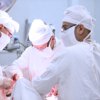
Xvivo tar in 440 miljoner för transplantationsstudier i hjärta och lever
Transplantationsbolaget Xvivo har tagit in 440 miljoner kronor i en riktad nyemission av aktier.
-

Lucy Robertshaw: Artificial intelligence – is this really going to transform a patient’s life?
In a column Lucy Robertshaw reflects on how AI and new regulations will affect healthcare, innovation and the lives of future patients.
-

He got inside the head of Sweden’s vaccine hunter
The hunt for the COVID-19 vaccine is the theme of the new book Vaccinjägaren (The Vaccine Hunter). It tells the story of Richard Bergström’s mission as Sweden’s national vaccine coordinator and the scheming that went on behind the scenes in Europe. Author and medical journalist Nils Bergeå co-wrote the book with Richard Bergström.
-

Prisas för forskning om smärta och beröring
Hur vårt beteende påverkas av smärta och beröring, det forskar India Morrison, biträdande professor i kognitiv neurovetenskap vid Linköpings universitet på. Nu får hon Onkel Adamspriset för sin forskning.
-

Den enes snor blir den andres bot
Snortransplantation – ordet ger rysningar. Nu presenteras en studie där skånska patienter med kronisk tjock snuva, förbättrades efter att ha använt nässprej innehållande snor från en närstående person med frisk näsa.
-

Forskning om tarmar och gener gav unga forskare miljonpris
Viktiga upptäckter om tarmarnas immunförsvar och hur generna skiljer olika individer åt hör till den forskning som belönas med det prestigefyllda Göran Gustafsson-priset.
-

Nytt KI-centrum ska lösa gåtan kring världens värsta huvudvärk
Karolinska institutet startar vad som uppges vara världens första forskningscentrum för klusterhuvudvärk, som är den mest smärtsamma huvudvärk som finns.
-

ALS – When the body has given up, but the brain persists
The nerve disease ALS gradually deprives the patient of control over the muscles and, eventually, also of speech. The eyes continue to function, though, and with the help of, among other things, a Swedish-developed invention, communication with the outside world can continue. “It’s their window to the world,” says ALS researcher Caroline Ingre.
-

Uppmärksamheten kring ALS ger pengar till hennes forskning
Den neuromuskulära sjukdomen ALS har fått stor uppmärksamhet i och med Börje Salmings insjuknande och sedemera dödsfall till följd av sjukdomen. Att hockeylegendaren blev sjukdomens ansikte utåt har också gjort att pengar strömmar in till ALS-forskningen.
-
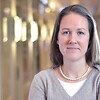
"Are we doing business the wrong way around in the Life Science Sector?"
For the past 50 years we have created solutions for problems that we thought would solve the problems. Pharmaceuticals have created big block buster drugs which were great for that time but now we realise that these drugs were in fact only tested in white men and certainly not for patients who are older who are taking a number of medications.
-

“We need to build flexible operating theatres”
Flexible operating theatres, micro-sensors on surgeons to monitor their well-being and 3D images projected onto organs to be operated on. These are a few ideas that three specialist surgeons are suggesting for the operating theatre of the future.
-
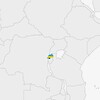
Sverige donerar uppdaterat vaccin till Rwanda
Sverige donerar 310 000 doser vaccin mot covid-19 till Rwanda, efter ett beslut av regeringen.
-
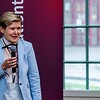
FOKUS Patient turns international
FOKUS Patient is arranging conferences over 3 days in October, and this year, the focus will be on international collaborations.
-
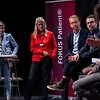
Fokus Patient blir internationellt
I oktober arrangerar Fokus Patient konferenser i dagarna tre. Fokus ligger i år på internationella samarbeten.
-
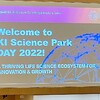
Lucy Robertshaw: Did you know Stockholm wants to be in top 5 in the world for Life Sciences?
Karolinska Institutet Solna Campus has certainly become the next “Kendall Square”, writes Lucy Robertshaw in a column.
-
Kalmar tar täten inom e-hälsa
Under det senaste decenniet har digitalisering och e-hälsolösningar skapat nya möjligheter för medicintekniska företag. I Kalmar län har regionen skapat en e-hälsoarena med visionen att länet ska bli ett internationellt centrum för e-hälsans utveckling.
-
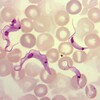
Noxious parasite forms hybrids and deceives the immune system
The small parasite Trypanosoma cruzi has a nasty ability to cause serious illness. Researchers at the Karolinska Institutet have now mapped its ability to deceive the immune system by forming new variants that are mixtures of different strains.
-
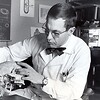
When carelessness, forgetfulness and coincidence become the researcher’s best friend
Forgetfulness, coincidence and a stroke of luck hardly make up a fruitful method of serious research. Or do they? Actually, a number of important medical advances have come about thanks to completely random incidents and the open-mindedness of scientists who were ready to think outside the box.
Få tillgång till allt innehåll på Life Science Sweden
Ingen bindningstid eller kortinformation krävs
Redan prenumerant? Logga in
Gäller endast personlig prenumeration.
Kontakta oss för en företagslösning.